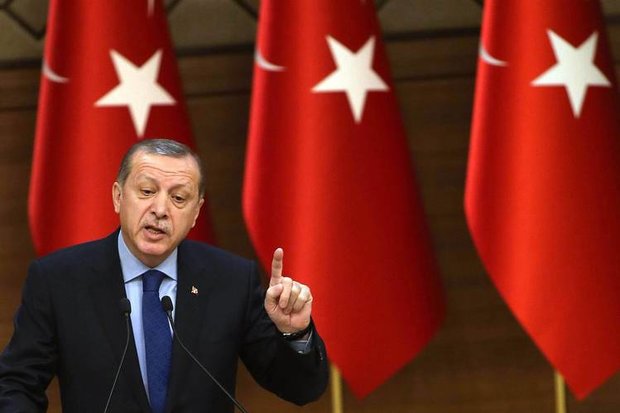The east of the Euphrates River in Syria has become the focal point of the parties involved in Syria, including Turkey. The area is controlled by Kurdish fighters which Turkey regards as a threat to its national security. Turkey emphasizes the overcoming of Kurdish threat, but it knows that this will lead to a confrontation with the Americans that Ankara will not be able to withstand.
But in this region, apart from the Washington-backed Kurdish fighters and American’s forces, there are also Takfiri terrorists (ISIS/Daesh), which have started new moves.
Recent speeches by Turkish President Recep Tayyip Erdogan and his last warning to those who endanger the Turkish border and its security have once again shown that Ankara looks to the Kurds in eastern Euphrates as a serious threat and is determined to eliminate this danger.
But Turkey’s concern could be in the interest of Damascus and Moscow, so that Russia can exploit it over the Kurdish ambitions in favor of the Syrian government. In particular, the warm ties between Moscow and Ankara have been created after the agreement on a weapons-free zone in Idlib. Turkey, which has reassured the Idlib deal, is now looking at a more dangerous threat, the Kurdish-dominated areas in northern Syria and its northeast.
Ankara now feels that it has been fooled by the United States because the deal has not apparently been implemented by the Americans, and the Kurds are still in the Syrian city of Manbij.
Turkey believes that Washington deliberately keeps Ankara’s attention over Manbij in order to beef up Kurdish power in north and northeast Syria through more military support.
Meanwhile, the Russians have a particular interest in the eastern part of the Euphrates. The Russian officials recently blamed the US for undermining Syria's territory and control over Kurds. Moscow has also revealed the suspicion acts in the international-controlled coalition in Syria.
Some analysts believe that the Russia seeks to exploit Turkey's rising concern over the Kurdish ambitions in Syria, and therefore considers any escalation of Turkey's move in eastern Syria to its advantage and its ally, the Syrian government.
“Turkey is being threatened by terror group on the east of the Euphrates,” Recep Tayyip Erdogan said, referring to the YPG. “We don’t threaten anyone and we won’t let anyone do things that threaten us right beside our borders,” he said on Oct. 26.
Earlier before the planning and preparations for an offensive against the PKK's Syrian affiliate in northern Syria on the east of the Euphrates River were completed, President Recep Tayyip Erdogan said: “We will destroy the terrorist establishment on the east of the Euphrates. Soon we will bring down the terrorist group with even more extensive and more effective operations”
Is Erdogan going on an adventure in eastern Euphrates?
Turkey is unlikely to make an adventure in eastern Euphrates, similar to the “Operation Euphrates Shield” in 2016, in which it succeeded in removing the Kurds from the city of al-Bab in Aleppo Province and end up by dominating Afrin city.
Experts believe that the military operations carried out by Turkey on the outskirts of Aleppo cannot be done in eastern Euphrates, for reasons like the democratic Syrian force, whose number exceeds 100,000 people. Meanwhile, Americans have a military presence in eastern Euphrates, which is an obstacle to turning Ankara into an adventure. Erdogan is threatening to expel Syria's Kurds from eastern Euphrates, but analysts believe that the situation is not as easy as the Turkish president speaks about.
Turkey has other cards to play but first and for most, it has to reach an agreement with Damascus. The Syrian government has insisted on repossessing all Syria's lands, including the Kurdish-controlled areas, and has recently warned the Kurds about continuing to contact the US.
This issue becomes important as it has political and military dimension to it. Washington insists on the involvement of the Kurds in the Syrian constitutional committee, and Ankara and Damascus are against it.
Erdogan, in the east of Euphrates, can’t move without coordination with Iraq, Iran and Syria, as well as Russia. But will Turkey be in direct coordination with these countries if it decides to move its troops on this front? A question that has no clear answer just like Erdogan's threats.
Can we conclude that the honeymoon between Trump and Erdogan has come to a halt after the release of the American priest as Ankara is facing the US forces and bases in the east of Euphrates?
MNA/TT

























Your Comment